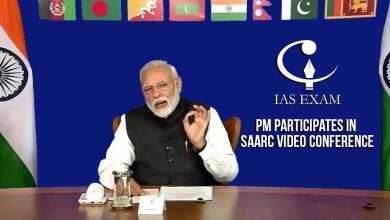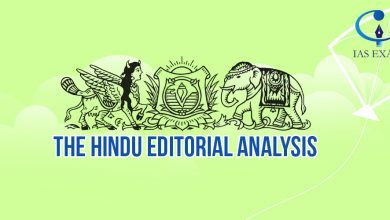Cognizant of constraints: On 15th Finance Commission’s interim report
The 15th Finance Commission tries not to rock devolution boat given GST’s ongoing troubles
The interim report of the 15th Finance Commission, tabled in Parliament recently, has largely preserved the devolution mathematics of its predecessor, belying concerns of a sizeable cut in States’ share.
The commission has recommended a one percentage point reduction in the vertical split of the divisible pool of tax revenues accruing to States to 41%. This follows the reorganization of the erstwhile State of Jammu and Kashmir into the Union Territories of Jammu and Kashmir and Ladakh. While the former State’s notional share based on the parameters for horizontal devolution would have been about 0.85%, the commission has cited the security and other special needs of the two territories to enhance their aggregate share to 1%, which would be met by the Centre.
As part of an effort to balance the principles of fiscal
needs, equity and performance as well as the need to ensure stability and
predictability in transfers, the criteria for the horizontal sharing of taxes
among States have been rejigged.
A crucial new parameter, demographic performance, has been added to the mix.
Having been mandated to adopt the population data from the 2011 Census, the
commission has incorporated the additional criterion to ensure that States that
have done well on demographic management are not unfairly disadvantaged. And
since the norm also indirectly evaluates performance on the human capital
outcomes of education and health, it has been assigned a weight of 12.5%. This
should address the concerns voiced by several States over the switch to the
2011 Census from the 1971 data.
Crucial Highlights for Different States
- Among the States, with the exception of Tamil Nadu, all the other four southern States see a reduction in the recommended share of taxes for the year 2020-21.
- The suggested devolution to Odisha and Uttar Pradesh has also shrunk in percentage terms. Crucially, the commission has flagged the issues dogging the GST, especially as indirect taxes constitute almost half the total tax revenues of the Union.
- From the sizeable shortfalls and volatility in collections, to serious cases of fraud, the new tax has yet to stabilize leaving a majority of the States dependent on compensation from the Centre.
- Urban local bodies, especially municipalities in cities with populations of more than one million, are set to get a larger share of the pie. However, the increase in the percentage of outcome-tied funds to 50%, from 10%, could prove vexing to the last mile providers of basic services in India’s federal and highly fragmented structure of governance.
- The commission has also been justifiably critical of the Union and State governments’ tendency to finance spending through off-budget borrowings and via parastatals. It has done well to ask that such extra-budgetary liabilities be clearly earmarked and eliminated in a time-bound manner.
About the 15th Finance Commission
The Fifteenth Finance Commission was constituted in November 2017 and is to give recommendations for devolution of taxes and other fiscal matters for five fiscal years, commencing 1 April 2020.
The commission’s chairman is N. K. Singh, with its full-time members being Ajay Narayan Jha, Ashok Lahiri and Anoop Singh. In addition, the commission also has a part-time member in Ramesh Chand. Shaktikanta Das served as a member of the commission from November 2017 to December 2018.
The 15th Finance Commission (FCC), in its interim report for 2020-21, had reduced the share of states in the divisible pool of central taxes by one percentage point to 41%, factoring in the conversion of the erstwhile state of Jammu and Kashmir into two Union territories. The report, tabled in Parliament on 1st February 2020 by the Finance minister, also tweaked the criteria and weights under which funds are allocated to states.





.png)



